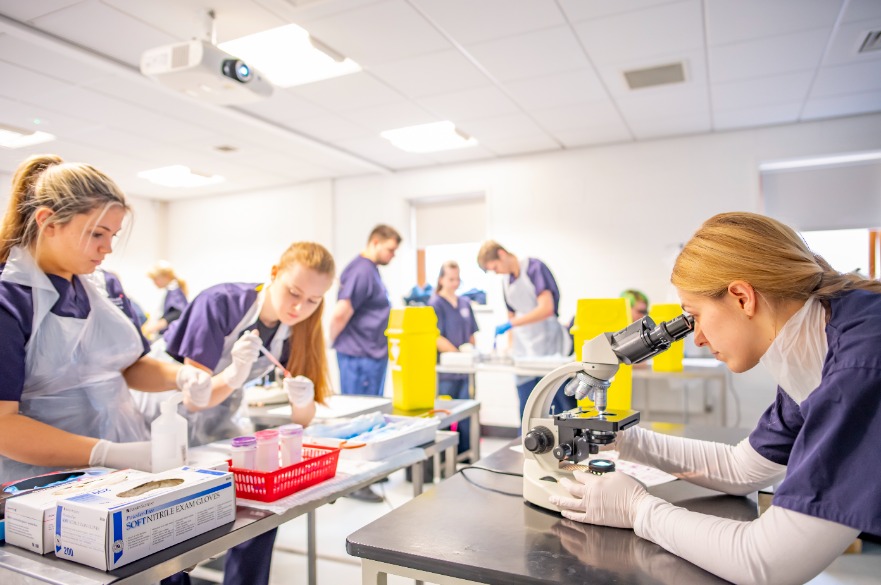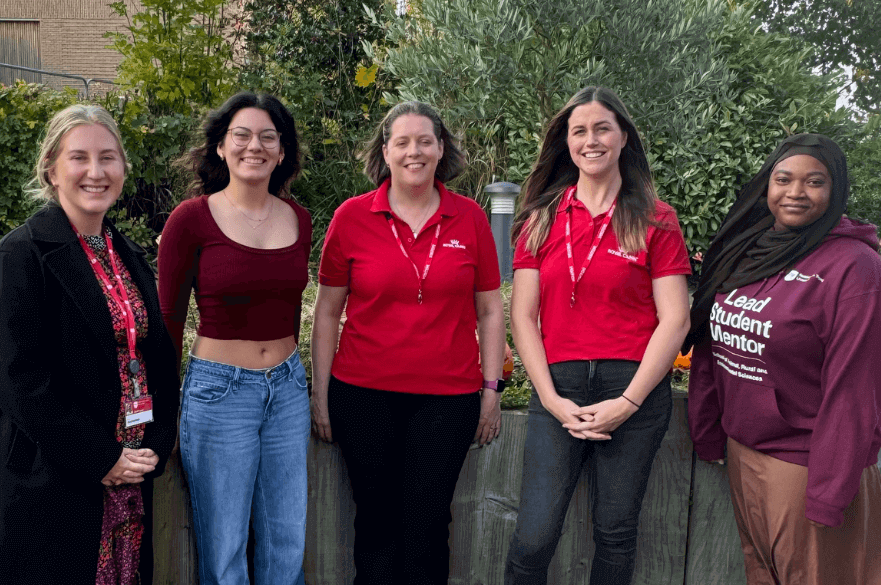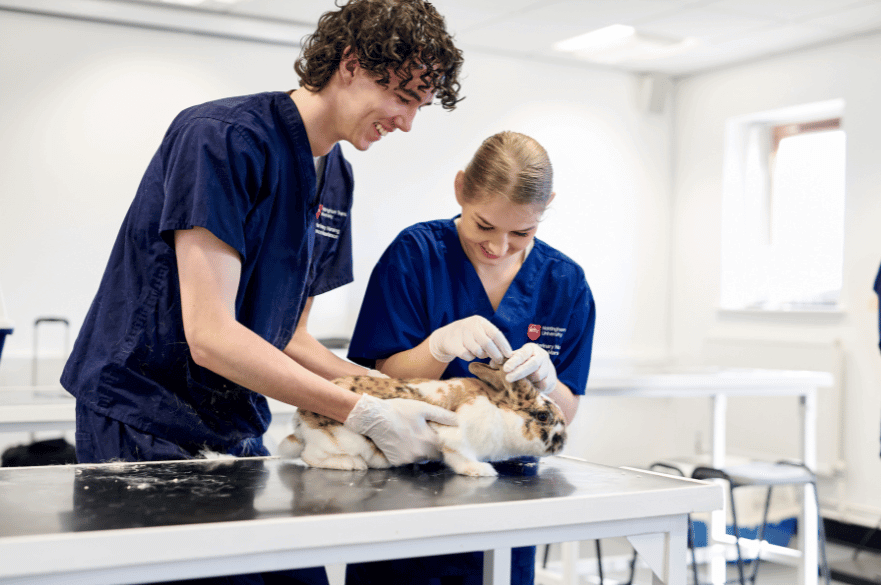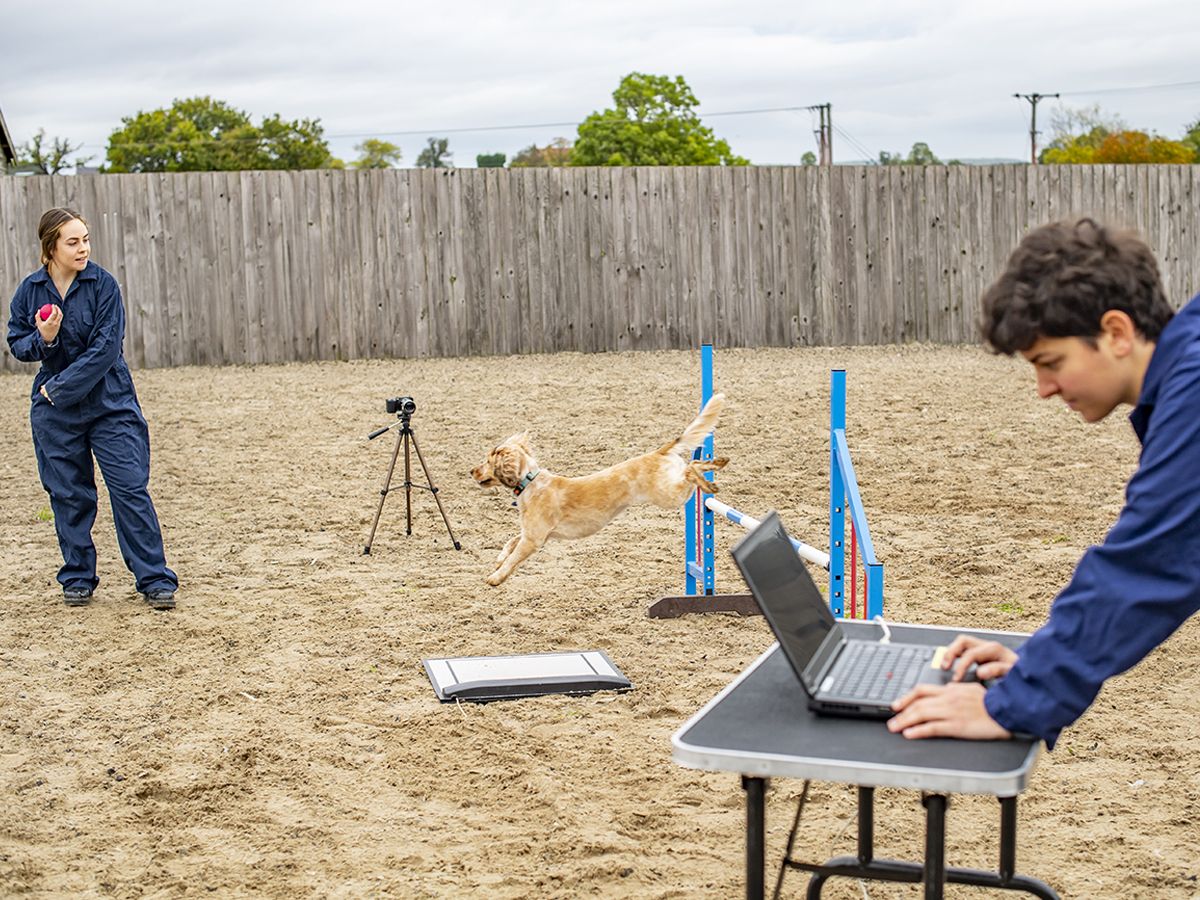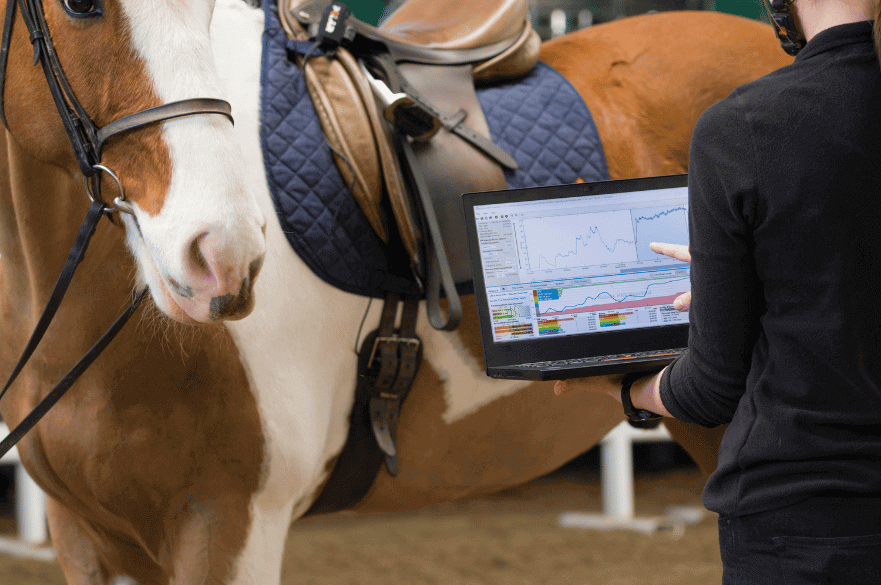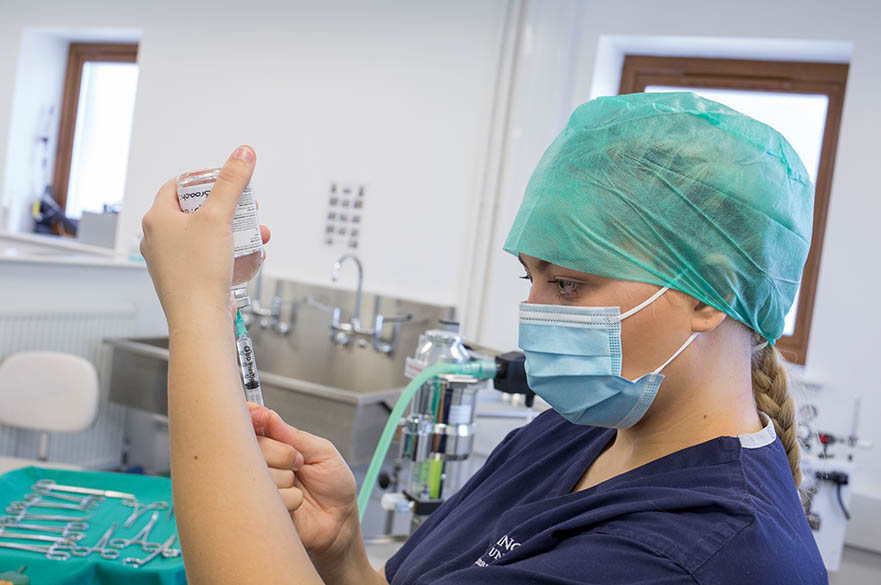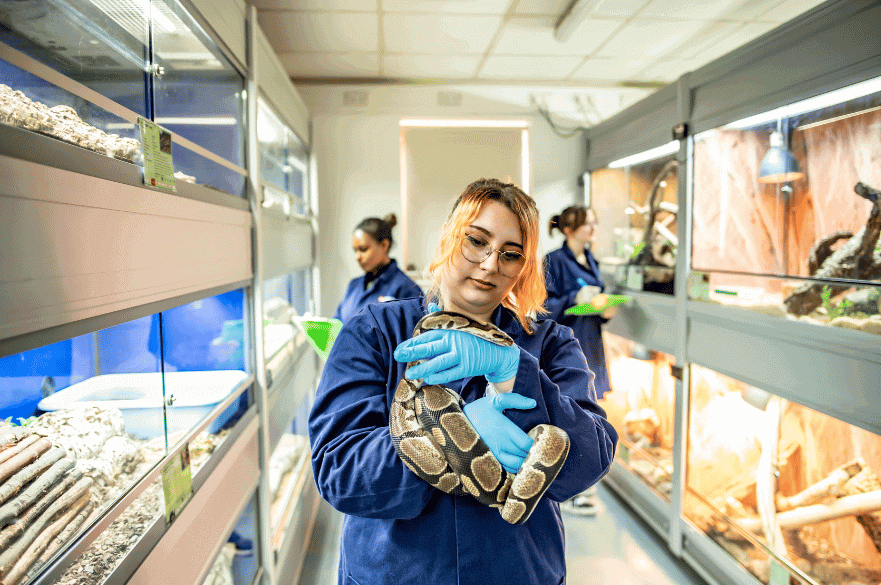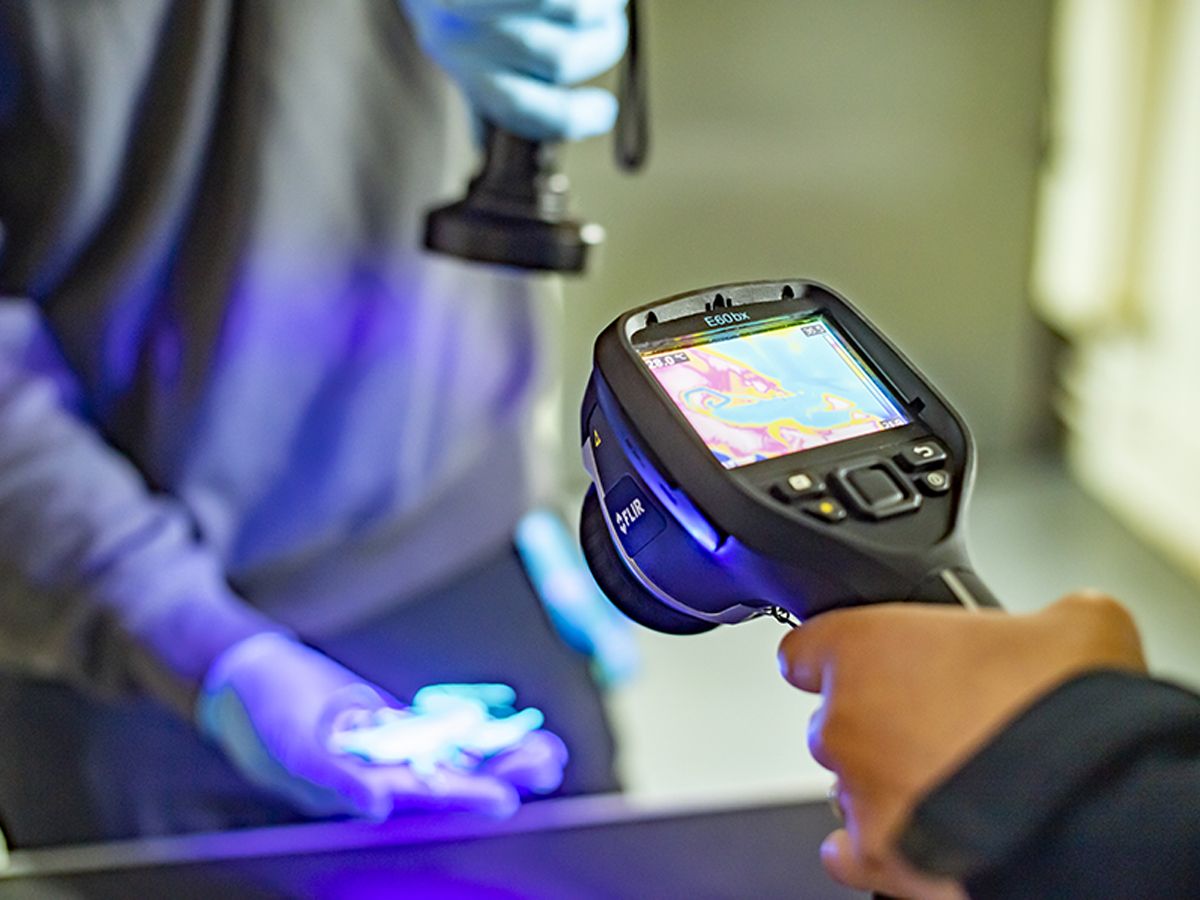This course is in Clearing
Offers from 64 tariff points
About this course
If you’re passionate about the support and care of animals and want a hands-on, rewarding career, this foundation degree is your launchpad into the world of veterinary nursing.
This course offers the perfect mix of science and practical skills, helping you build the confidence and experience to care for small animals in a veterinary setting. It’s accredited by the Royal College of Veterinary Surgeons (RCVS), which means once you graduate, you can apply to enter the RCVS Register of Veterinary Nurses and start working straight away.
You’ll do everything a registered veterinary nurse does – caring for in-patients, helping in surgeries, running lab tests, taking X-rays, assisting with consultations, and managing medications. Every day is different, and every skill you learn will help you build a rewarding veterinary career.
What you’ll study
As part of the course, you’ll take part in hands-on practical sessions and skills workshops to build your confidence and experience. Throughout your journey, you’ll receive one-on-one support from tutors who are dedicated to helping you succeed. This is more than just a course – it’s your first step into a career doing something that will improve the quality of care for animals and provide informed help and support to their owners.
The highlights of our FdSc Veterinary Nursing degree include:
- studying at our Brackenhurst Campus, a working farm and a wildlife haven, fully equipped with outstanding facilities
- learning from our tutors, many of whom are active veterinary practitioners
- gaining practical experience in areas like animal handling, nursing skills, administering medication, radiography, bandaging, and more
- our Animal Unit, which houses a wide range of domestic and exotic species for hands-on learning
- getting a balanced mix of theory and practice that will prepare you for both academic success and real-world clinical work
- taking part in rewarding projects like Vets in the Community project, working alongside veterinary students, providing free care to the animals of Nottingham’s homeless and vulnerably housed community.
Animal Husbandry (20 credits)
Learn essential husbandry and management skills required to care for a range of animals competently within a veterinary practice and how to provide client support.
Introduction to Animal Disease (20 credits)
Gain an understanding of the causes of disease, the function of the animal immune system and influences of management on animal health.
Applied Functional Anatomy (20 credits)
Gain a broad understanding of animal structure and function across a range of species, and of how this applies to clinical practice.
Essential Veterinary Nursing Skills (20 credits)
You’ll begin to develop your knowledge of practical aspects of healthcare, including physical examination techniques, and basic nursing and laboratory skills.
Practice Administration and Communication Skills (20 credits)
You’ll learn essential skills for working in a veterinary practice. These include legal and professional regulations, teamwork, the roles and responsibilities of practice staff, time management, and organisational and communication skills.
Clinical Behaviour (20 credits)
Learn about the main behavioural problems in pets. This module encompasses behaviours that cause distress to owners and / or their pets, and in addition, those that affect the clinical management of these patients. You’ll examine their causes, diagnosis, treatment and preventative measures.
Placement (approximately 12-week clinical placement, June - September)
Undertake a clinical placement in an approved veterinary training practice.
Applied Medical Nursing (40 credits)
You’ll develop knowledge of nursing care frameworks, medical diseases and disorders, and veterinary nursing interventions. You’ll also explore patient assessment and triage in nursing emergency and critical care patients.
Anaesthesia and Pain Management (20 credits)
You’ll develop your knowledge of anaesthetic preparation, induction, maintenance and recovery. You’ll also explore different strategies for pain management in small animal patients.
Diagnostic Aids (20 credits)
Learn how to prepare patients for, and conduct, diagnostic procedures, and how to recognise abnormal test results.
Pharmacology and Complementary Therapies (20 credits)
Learn about the key principles of pharmacology and the evaluation of legislation, storage, supply and administration of veterinary medicines. You’ll also look at various complementary therapies and their significance within the veterinary field.
Surgical Nursing and Theatre Practice (20 credits)
Learn how to prepare for surgical procedures and assist within the surgical environment. You’ll develop the skills required to assist the veterinary surgeon as a scrubbed nurse during surgical procedures on patients.
FdSc Veterinary Nursing Placement (approximately 37-week clinical placement)
Undertake a clinical placement in an approved veterinary training practice. You’ll also attend several contact days at the University to enhance your learning, and to prepare you for your final practical examinations.
We regularly review and update our course content based on student and employer feedback, ensuring that all of our courses remain current and relevant. This may result in changes to module content or module availability in future years.
Don’t just take our word for it, hear from our students themselves
Student Work
Video Gallery
How you're taught
You’ll learn in lots of different ways, including group discussions, lectures, and hands-on practical sessions.
Your lessons will be led by qualified veterinary nurses and veterinary surgeons who are registered with the Royal College of Veterinary Surgeons (RCVS). You’ll also have opportunities to learn from visiting professionals and subject specialists.
How you're assessed
You’ll be assessed in a variety of ways, in ways such as:
- producing written reports
- presentations
- exams.
You’ll also complete practical tests and assignments to show what you can do in real-life situations.
A big part of your course will be clinical placements in approved small animal veterinary practices. This is where you’ll put your skills into action and gain valuable experience working in the industry. In your third year, you’ll also come back to university for contact days to help prepare you for your final practical exams.
Careers and employability
Graduating from the FdSc Veterinary Nursing course will open a wide range of career opportunities for you.
On graduation from the FdSc Veterinary Nursing course, you are eligible to register with the RCVS as a Registered Veterinary Nurse (RVN).
You’ll also have the opportunity to progress on to the BSc (Hons) Veterinary Nursing Science top-up course to further expand your qualifications and career opportunities.
Practical, real-world experience is a key part of this course. You'll complete a minimum of 1,800 hours in clinical placements across two key blocks:
- 12 weeks between June and August (between Year One and Year Two)
- 37 weeks from July to April (in your final year).
Placements are completed in approved veterinary training practices, where you'll:
- apply and strengthen your practical skills
- develop essential workplace experience
- work toward completing the RCVS Day One Competences (DOC), RCVS Day One Skills (DOS), and RCVS Professional Behaviours.
- maintain and complete a Nursing Progress Log.
We’ll support you to secure a clinical placement through our network of affiliated veterinary practices.
NTU Enterprise: Supporting Future Entrepreneurs
Interested in starting your own business? NTU Enterprise can help you turn your ideas into reality. Through our Centre for Entrepreneurship and Enterprise, you’ll receive guidance, resources, and support to create, develop, and grow your own venture during or after your studies.
Campus and facilities
You’ll mainly study in our Veterinary Nursing Centre, with access to facilities including an operating theatre, laboratory, and specialist equipment, including endoscope, ECG, and simulation x-ray machines.
As a dedicated home for our animal, rural and environmental science courses, the Brackenhurst Campus has a character all of its own. From students and staff to the animals themselves – cats and cattle, sheep and horses – it’s all about community. Relax with a coffee in the Orangery; kick back with your course mates in the Brack Bar; enjoy the peace and quiet of our Victorian walled garden or Eco-Library; grab a pal and take a relaxing stroll through 500 acres of stunning countryside.
Our Brackenhurst Campus sits on the doorstep of Southwell, a picture-perfect market town filled with rustic pubs, cosy cafés, and boutique shops. A little further afield, and served by reliable, late-running buses, you’ve got Nottingham – a legendary student city stuffed with history, culture, and well-kept secrets to discover at your leisure.
Entry requirements
This course is in Clearing
Looking for a place in Clearing? We are accepting application and would love to hear from you!
UK students
This course is in Clearing
Looking for a place in Clearing? We are accepting applications and would love to hear from you!
Clearing requirements
From 64 UCAS tariff points from up to 3 qualifications.
To discuss our entry requirements and see what we can offer you, call us now on +44 (0)115 848 6000. Alternatively, if you already have your qualifications, apply online via our Clearing Application form.
Preparing for results day? Beat the queue and sign up for NTU Priority for up-to-date information about all things Clearing. You’ll get an offer ahead of Clearing, subject to you achieving the required grades on results day.
Additional requirements
For this course we require:
- an A-level Science subject grade C or equivalent.
- GCSEs - English Language, Science and Maths grade C / 4.
You will also need:
- An interview
- Work experience
See Additional entry requirements below for more information about subjects, offers and work experience requirements.
Additional requirements for UK students
Work experience required
- A total of two weeks' (70 hours) work experience in a small animal veterinary practice, completed after September 2023
- A minimum of one week (35 hours) must be completed prior to application, with the additional week planned and completed before 30 April 2026.
Subjects accepted
For this course we accept the following Science subjects: Biology, Chemistry, Physics, Human Biology, Zoology and Psychology.
If you are taking a BTEC, or other non-A-level qualification, check how your modules match our requirements.
Alternative offers
If you are not offered a place on this course, you may be offered a place on an alternative course.
Access to Higher Education courses
If you’re aged 19+ and don’t have the qualifications to meet the entry criteria, you can study an Access to HE course right here at NTU. These one-year courses are designed specifically as an alternative route to university.
Meeting our entry requirements
Hundreds of qualifications in the UK have UCAS Tariff points attached to specific grades, including A-levels, BTECs, T Levels and many more. You can use your grades and points from up to three different qualifications to meet our criteria. Enter your predicted or achieved grades into our Tariff calculator to find out how many points your qualifications are worth.
Other qualifications and experience
NTU welcomes applications from students with non-standard qualifications and learning backgrounds, either for year one entry or for advanced standing beyond the start of a course into year 2 or beyond.
We consider study and/or credit achieved from a similar course at another institution (otherwise known as credit transfer), vocational and professional qualifications, and broader work or life experience.
Our Recognition of Prior Learning and Credit Transfer Policy outlines the process and options available for this route. If you wish to apply via Recognition of Prior Learning, please contact the central Admissions and Enquiries Team who will be able to support you through the process.
Getting in touch
If you need more help or information, get in touch through our enquiry form.
International students
This course is in Clearing
Looking for a place in Clearing? We are accepting applications and would love to hear from you!
Clearing requirements
From 64 UCAS tariff points from up to 3 qualifications.
To discuss our entry requirements and see what we can offer you, call us now on +44 (0)115 848 6000. Alternatively, if you already have your qualifications, apply online via our Clearing Application form.
Preparing for results day? Beat the queue and sign up for NTU Priority for up-to-date information about all things Clearing. You’ll get an offer ahead of Clearing, subject to you achieving the required grades on results day.
Additional requirements
For this course we require:
- an A-level Science subject grade C or equivalent.
- GCSEs - English Language, Science and Maths grade C / 4.
You will also need:
- An interview
- Work experience
See Additional entry requirements below for more information about subjects, offers and work experience requirements.
We accept equivalent qualifications from all over the world. Please check your international entry requirements by country.
Please note this course is not open to students requiring a Tier 4 / Student Route visa.
Additional requirements for international students
Work experience required
- A total of two weeks' (70 hours) work experience in a small animal veterinary practice, completed after September 2023
- A minimum of one week (35 hours) must be completed prior to application, with the additional week planned and completed before 30 April 2026.
Subjects accepted
For this course we accept the following Science subjects: Biology, Chemistry, Physics, Human Biology, Zoology and Psychology.
If you are taking a BTEC, or other non-A-level qualification, check how your modules match our requirements.
Alternative offers
If you are not offered a place on this course, you may be offered a place on an alternative course.
Please note this course is not open to students requiring a Tier 4 / Student Route visa.
English language requirements
View our English language requirements for all courses, including alternative English language tests and country qualifications accepted by the University.
If you need help achieving the language requirements, we offer a Pre-Sessional English for Academic Purposes course on our City campus which is an intensive preparation course for academic study at NTU.
Other qualifications and experience
If you have the right level of qualifications, you may be able to start your Bachelors degree at NTU in year 2 or year 3. This is called ‘advanced standing’ entry and is decided on a case-by case basis after our assessment of your qualifications and experience.
You can view our Recognition of Prior Learning and Credit Transfer Policy which outlines the process and options available, such as recognising experiential learning and credit transfer.
Sign up for emails
Sign up to receive regular emails from the International Office. You'll hear about our news, scholarships and any upcoming events in your country with our expert regional teams.
Getting in touch
If you need advice about studying at NTU as an international student or how to apply, our international webpages are a great place to start. If you have any questions about your study options, your international qualifications, experience, grades or other results, please get in touch through our enquiry form. Our international teams are highly experienced in answering queries from students all over the world.
Policies
We strive to make our admissions procedures as fair and clear as possible. To find out more about how we make offers, visit our admissions policies page.
